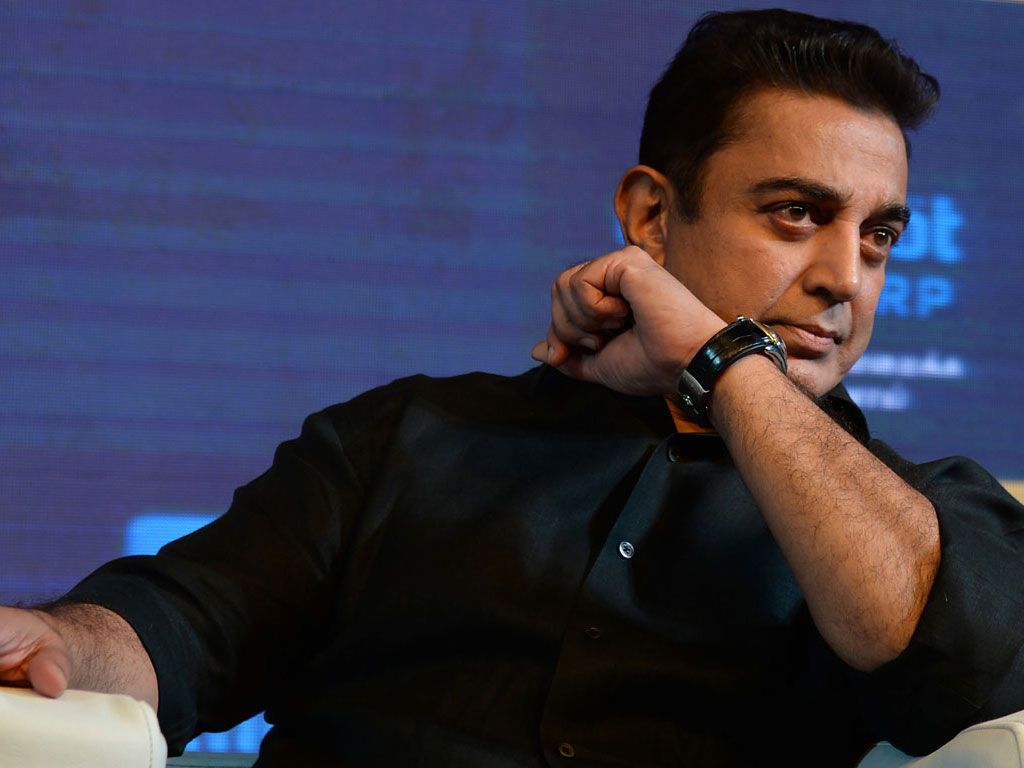
Name: Kamal Haasan (Parthasarathy Srinivasan)
Date of Birth: 07 November 1954
Parents: D.Srinivasan & Rajalakshmi Srinivasan
Spouse: Vani Ganapathy (married: 1980; divorced: 1988)
Sarika Thakur (married: 1988; divorced: 2004)
Children: Shruti Haasan & Akshara Hassan
Siblings: Charuhasan, Chandrahasan, Nalini Raghu
Occupation: Actor, Film-Maker, Playback Singer, Television Presenter
& Politician
Overview: Kamal Haasan is an Indian actor who mainly works in Tamil movies. He started acting when he was just 5 years old in the 1960 Tamil film Kalathur Kannamma. This movie was directed by A. Bhimsingh and Kamal won the President’s Gold Medal for his performance in it.
Early life & Family:
Haasan was born on November 7, 1954, into a Tamil Brahmin family. His father, D. Srinivasan, was a lawyer and freedom fighter, while his mother, Rajalakshmi, took care of the household. Initially named Parthasarathy, he was later given the name Kamal Haasan by his father.
Haasan’s family had a strong creative streak. His brothers, Charuhasan and Chandrahasan, were involved in acting, and his sister, Nalini, pursued classical dance. Growing up in this environment, Haasan was exposed to various forms of art and entertainment from a young age.
He received his primary education in Paramakudi before moving to Madras (now Chennai) for his higher education. It was during this time in Madras that Haasan’s interest in films and fine arts blossomed, greatly encouraged by his father’s support and inspiration.
This early exposure and encouragement played a pivotal role in shaping Haasan’s future career path in the world of cinema and performing arts.
Film Career:
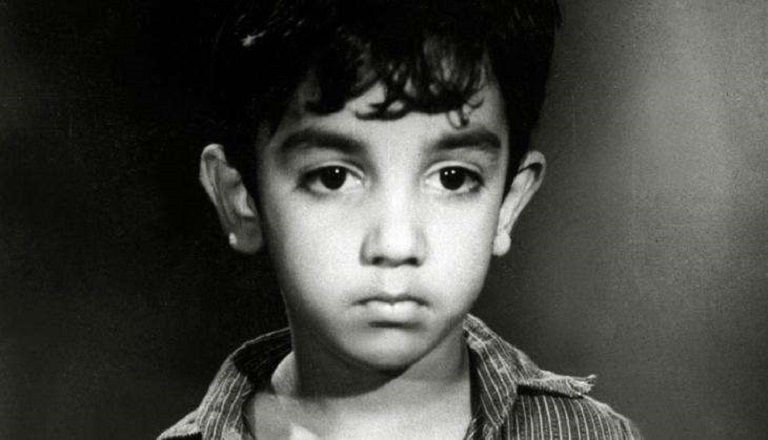
1960–1963:
When a doctor friend of his mother visited A.V. Meiyappan (AVM) to treat Meiyappan’s wife, she brought Kamal Haasan along. Impressed by Haasan’s behavior, AVM’s son, M. Saravanan, suggested him for their movie “Kalathur Kannamma.”
Haasan won the Rashtrapati Award (President’s gold medal) for his acting in “Kalathur Kannamma” when he was only six years old. He acted in five more movies as a child actor.
Haasan then started his career in the Malayalam film industry with “Kannum Karalum” in 1962. Encouraged by his father, Haasan joined a theater group called T. K. S. Nataka Sabha, led by T. K. Shanmugam.
While studying at the Hindu Higher Secondary School in Triplicane, Haasan’s time with the theater group influenced his acting skills and sparked his interest in makeup.
1970–1975:
After taking a break from films for seven years, Haasan returned to the industry as a dance assistant, working under choreographer Thankappan.
During this time, he had small roles in a few films without receiving credit. His first appearance was in the 1970 film Maanavan, where he appeared in a dance scene. He assisted Thankappan in films like Annai Velankani (1971) and Kasi Yathirai (1973), where he also had a supporting role and worked as an assistant director.
His first major role came in K. Balachander’s Tamil film Arangetram (1973), followed by being cast as the antagonist in Sollathaan Ninaikkiren (1973) by Balachander. Haasan then took on supporting roles in films such as Gumasthavin Magal (1974), Aval Oru Thodar Kathai (1974), and Naan Avanillai. In the same year, he played his first lead role in the Malayalam film Kanyakumari, which earned him his first Filmfare Award.
In Tamil cinema, Haasan’s breakthrough as a lead actor came in Balachander’s Apoorva Raagangal. He portrayed a rebellious young man who falls in love with an older woman. To prepare for this role, Haasan learned to play the mridangam. This role earned him his second Filmfare Award.
1976–1979:
In 1976, Haasan starred in Balachander’s film Manmadha Leelai, followed by Oru Oodhappu Kan Simittugiradhu directed by S. P. Muthuraman, which earned him his third Filmfare Award. He then appeared in Balachander’s drama Moondru Mudichu. Avargal (1977) focused on the women’s movement, and for this role, Haasan learned ventriloquism. The movie was remade in Telugu as Idi Katha Kaadu (1979), with Haasan reprising his role.
In 16 Vayathinile (1977), he played a naive village youth and won his fourth consecutive Best Actor award. That same year, Haasan starred in his first Kannada film, Kokila, directed by his friend and mentor Balu Mahendra. He also appeared in a Bengali film, Kabita, a remake of the Tamil film Aval Oru Thodar Kathai.
In 1978, Haasan made his Telugu film debut in the cross-cultural romantic film Maro Charitra, directed by Balachander, which earned him his fifth consecutive Filmfare Award. He then starred in Sigappu Rojakkal, a thriller where he portrayed a psychopathic sexual killer. He also appeared in the Malayalam film Eeta, winning his sixth Filmfare Award.
Haasan acted opposite Sridevi for the first time in the 1977 Malayalam movie Satyavan Savithri directed by P.G. Viswambharan. This pairing later became celebrated and well-accepted. In the 1979 Telugu film Sommokadidi Sokokadidi, Haasan played dual roles, marking his initial collaboration with director Singeetam Srinivasa Rao. He also starred in the musical Ninaithale Inikkum, the snake-horror film Neeya, and Kalyanaraman during the late 1970s, accumulating six regional Best Actor Filmfare Awards, including four consecutive Best Tamil Actor Awards.
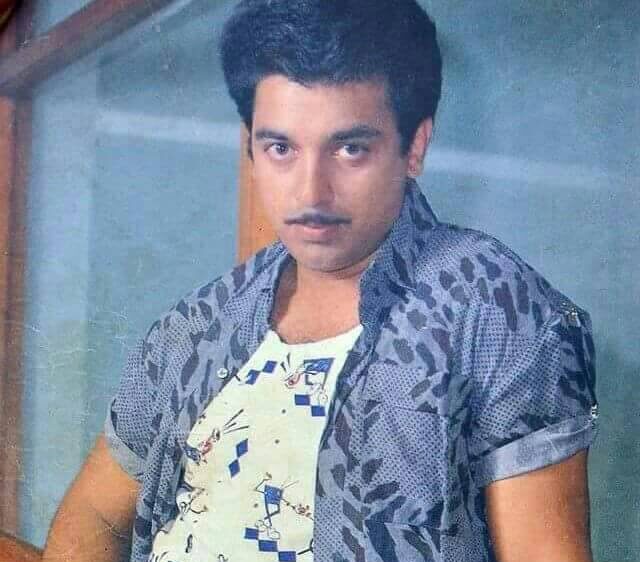
1980–1989:
During the 1980s, Haasan starred in several notable films across different Indian languages. In 1980, he appeared in Varumayin Niram Sivappu, which was also made in Telugu as Aakali Rajyam. His role as an unemployed youth in the film earned him his first Filmfare Award in Telugu. That same year, he acted in Ullasa Paravaigal, Guru, and Maria My Darling.
Haasan made his Bollywood debut in Ek Duuje Ke Liye (1981), a remake of his Telugu film Maro Charitra. He produced and starred in Raja Paarvai (1981), his 100th film, playing a blind violinist, which won him a Filmfare Award despite its box-office performance.
In 1982, Haasan won his first National Award for Best Actor for his role in Moondram Pirai, later remade in Hindi as Sadma. He focused on remaking his Tamil films in Bollywood during this period.
In 1983, Haasan starred in Sagara Sangamam, where his portrayal of an alcoholic classical dancer won him accolades including a Nandi Award and a Filmfare Best Telugu Actor Award.
In 1985, Haasan won the Filmfare Best Actor Award for his role in Saagar, India’s entry for the Best Foreign Language Oscar that year. He briefly left Bollywood to act in Japanil Kalyanaraman, a sequel to his earlier film Kalyanaraman.
In 1986, Haasan produced Vikram and starred in Oka Radha Iddaru Krishnulu and Swathi Muthyam, winning another Nandi Award for Best Actor for his role as an autistic person in the latter. Swathi Muthyam was India’s entry for the Best Foreign Language Film at the Academy Awards in 1986.
In 1987, Haasan starred in Nayakan, for which he received his second Indian National Award. The film was India’s entry for the Best Foreign Language Film at the 1987 Academy Awards.
That same year, he appeared in Pushpaka Vimana, a silent black comedy that earned him his first Filmfare Award in Kannada.
In 1988, Haasan appeared in Unnal Mudiyum Thambi, Daisy (Malayalam), and Sathyaa, all of which were his own productions.
In 1989, Haasan continued his success with films like Apoorva Sagodharargal, where he played a dwarf, Chanakyan, Vettri Vizhaa (where he played an amnesiac), and Indrudu Chandrudu (where he played dual roles), winning multiple Filmfare Awards and another Nandi Award.
By the end of the 1980s, Haasan had achieved success in multiple Indian film industries, earning Filmfare Awards in each and receiving two national awards.
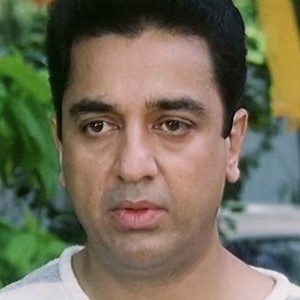
1990–1998:
In 1990, Haasan starred in Michael Madana Kama Rajan, where he played quadruplets, expanding on his previous role in Apoorva Sagodharargal. This film marked the beginning of his collaboration with writer Crazy Mohan for future comedy projects. Haasan then won Best Actor awards for his roles in Gunaa and Thevar Magan, where he portrayed deranged and obsessive characters. Thevar Magan, for which Haasan was also credited with the story, earned him his third National Film Award as a producer for Best Feature Film in Tamil and was India’s entry for the Academy Awards.
Following these successes, Haasan appeared in several films including Singaravelan, Maharasan, Kalaignan, Mahanadhi, Nammavar, and Sathi Leelavathi, which he produced. In Subha Sankalpam (Telugu) directed by K. Viswanath, and Kuruthipunal (Tamil), which was simultaneously shot in Telugu as Drohi, Haasan continued to shine, winning another Filmfare Best Actor award for Kuruthipunal.
In 1996, Haasan’s performance in the film Indian earned him his third National Film Award for Best Actor. This film was also India’s submission for the Academy Awards that year.
In 1994, Haasan became the first actor to charge 15 million per film, setting a new standard for actor remuneration in Indian cinema. He continued to push boundaries with roles like a woman in the comedy Avvai Shanmughi, inspired by Mrs. Doubtfire. Haasan took on the Hindi remake of this film, Chachi 420, directing it himself after initial dissatisfaction with the shooting.
In 1997, Haasan embarked on directing the ambitious biopic Marudhanayagam, centered on Dilip Kumar. Though the project faced challenges and remains unfinished, it was intended to be a groundbreaking film in Indian cinema.
Haasan’s diverse career continued with films like Kaathala Kaathala (1998), a romantic comedy directed by Singeetam Srinivasa Rao, which became a commercial success.
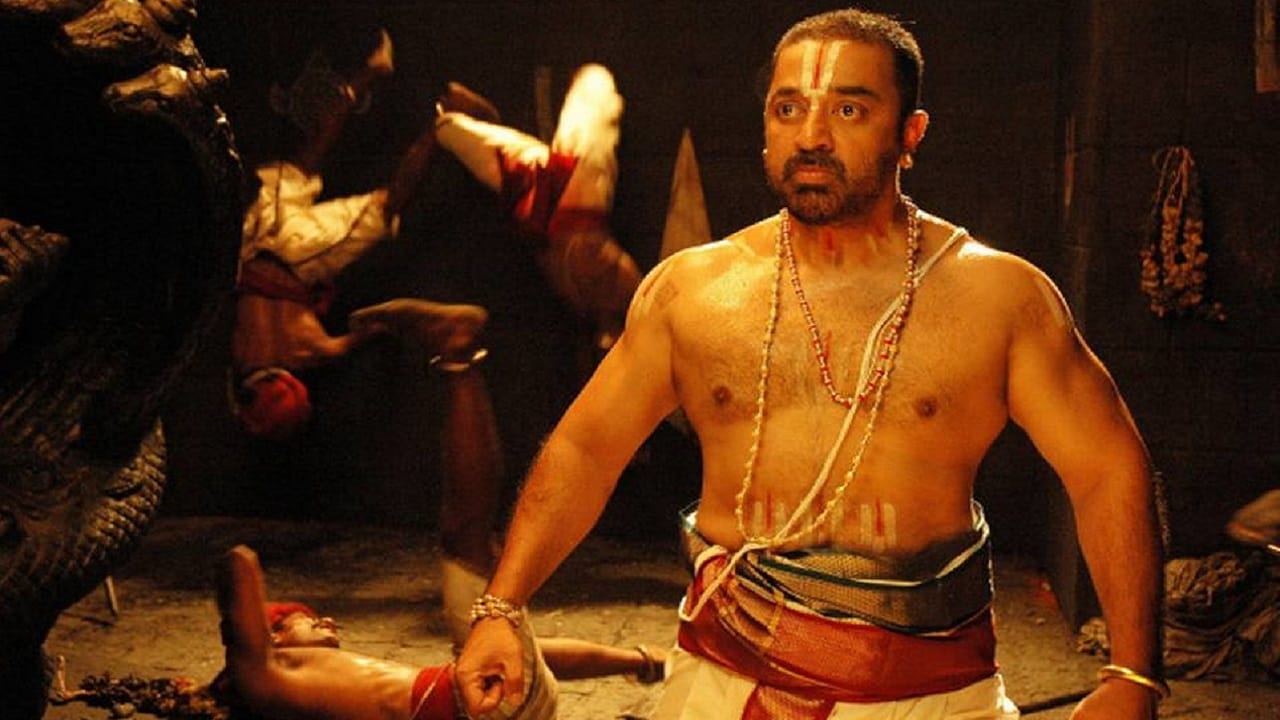
2000–2009
After taking a break from Indian cinema for two years, Haasan decided not to revive the Marudhanayagam project. Instead, he directed his second film, Hey Ram (2000), a period drama set during India’s partition and focused on the assassination of Mahatma Gandhi. Haasan produced, choreographed, wrote the screenplay, and penned the lyrics for this ambitious film, which was India’s entry for the Academy Awards that year. While Hey Ram did not perform well at the Indian box office, it found success internationally.
In the same year, Haasan starred in the comedy Thenali, playing a Sri Lankan Tamilian with PTSD under the care of a psychiatrist. The film, co-starring Jayaram, was a hit at the box office. His next venture was Aalavandhan (2001), where he portrayed dual roles, undergoing physical transformations for each character. Despite efforts, the film failed commercially.
Following these, Haasan had success with comedies like Pammal K. Sambandam and Panchatanthiram, along with guest appearances. He then directed Virumaandi, a film exploring capital punishment, which received the Best Asian Film Award at the Puchon International Fantastic Film Festival.
In 2003, Haasan starred in Anbe Sivam, where he played Nallasivam, a communist. Although the original director left during production, the film was well-received by critics.
In 2004, Haasan appeared in Vasool Raja MBBS, a remake of the Bollywood hit Munna Bhai M.B.B.S., which was a success. He followed this with Mumbai Xpress (2005), a comedy that received positive reviews but did not perform well commercially.
Haasan continued to explore different genres, starring in films like Rama Shama Bhama (2005) and Vettaiyaadu Vilaiyaadu (2006), a stylish police story directed by Gautham Vasudev Menon.
In 2008, Haasan’s ambitious project Dasavathaaram was released, featuring him in ten distinct roles. This sci-fi film, co-written with K. S. Ravikumar, became the highest-grossing Tamil film of the year and received critical acclaim.
Following Dasavathaaram, Haasan directed and produced Unnaipol Oruvan (2009), a remake of the Bollywood film A Wednesday, which was well-received both critically and commercially in Tamil and Telugu versions.
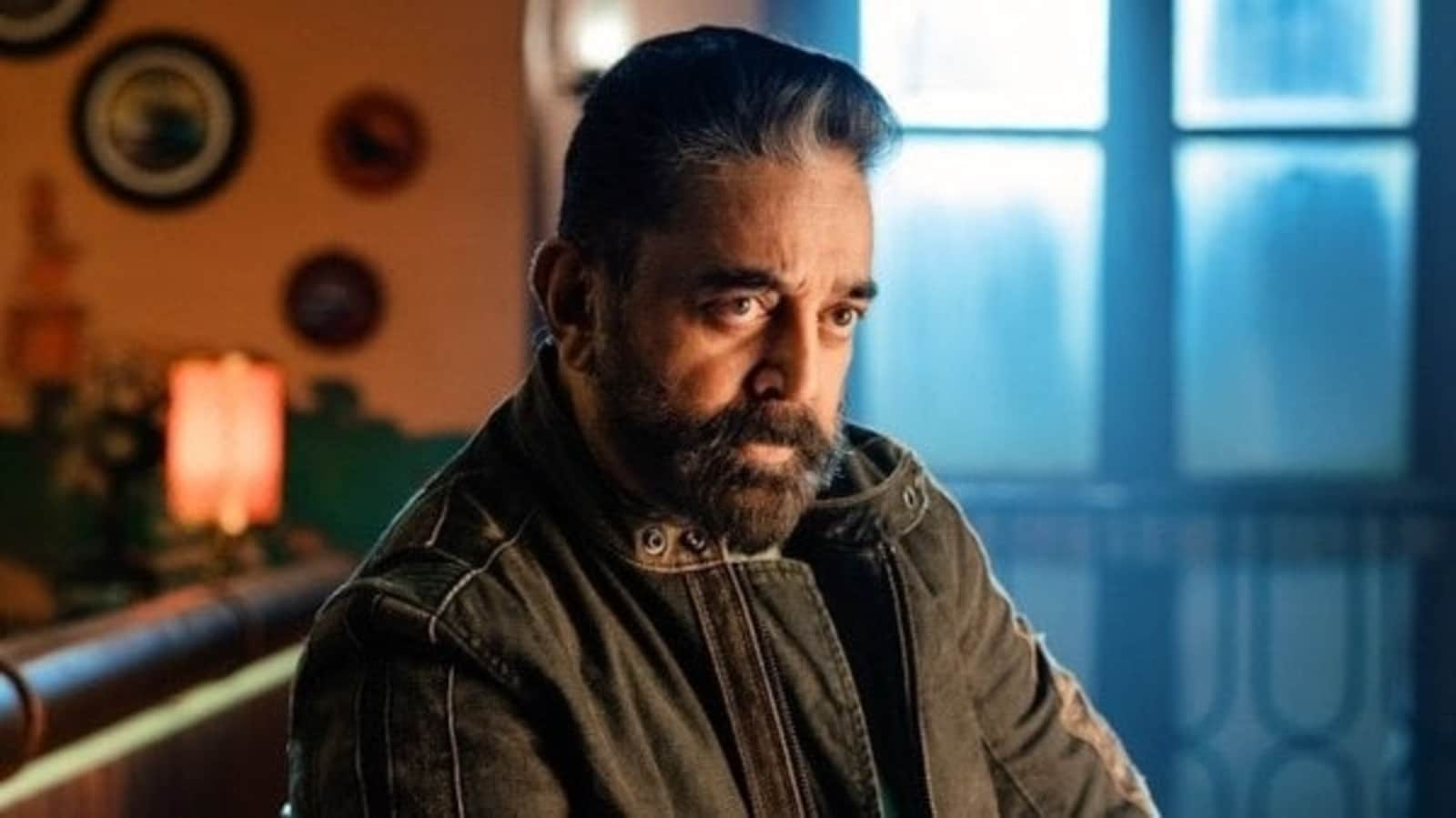
2010–Present
Haasan’s career in the 2000s and beyond saw him involved in various films and off-screen contributions. He continued his collaboration with director K. S. Ravikumar in Manmadan Ambu (2010), a film where Haasan wrote the screenplay. The story revolves around a man hiring a detective to investigate his fiancée’s loyalty. The film received mixed reviews upon release.
In 2013, Haasan starred in Vishwaroopam (released as Vishwaroop in Hindi), which won two National Film Awards. The film faced controversies in Tamil Nadu due to objections from certain Muslim groups, resulting in delays and restrictions on its release.
Haasan’s film Uttama Villain (2015) received critical acclaim upon release. He also appeared in Papanasam (2015), a successful Tamil remake of the Malayalam film Drishyam.
In 2022, Haasan starred in Vikram, which became a major commercial success and one of the highest-grossing Tamil films of all time. His role in the film, along with the song “Pathala Pathala,” gained significant attention and praise.
Haasan’s contributions extend beyond acting; he has written screenplays for several films, including Hey Ram, Vishwaroopam, and Virumaandi. His production company, Raaj Kamal Films International, has produced many of his films, and he has directed notable projects like Chachi 420, Hey Ram, Virumaandi, and Vishwaroopam.
Haasan is also known for his involvement in music and lyrics, having written songs for his films and collaborating with musicians like Anirudh Ravichander and Ghibran. He has showcased his singing talent in multiple languages.
Additionally, Haasan has shown a keen interest in literary works, being associated with projects like the musical tribute to Venmurasu, the longest novel in any language.
His journey in cinema continues with upcoming projects like Thug Life, Indian 2, and the Telugu film Kalki 2898 AD, marking his return to Telugu cinema. Haasan’s multifaceted contributions and dedication have made him a prominent figure in Indian cinema.
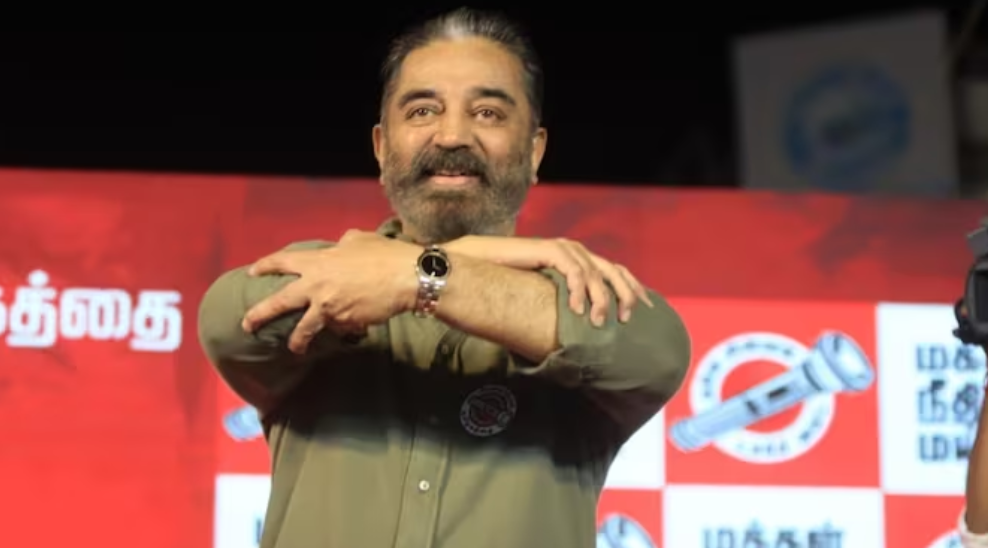
Political Career:
Haasan formed the Makkal Needhi Maiam (MNM), a political party in Tamil Nadu with a centrist ideology. He officially announced the party’s creation on 21 February 2018 in Madurai. The party’s flag features six joined hands in a circle, alternating between red and white colors, with a white star at the center on a black background. Haasan began his political journey by paying respects at late President A. P. J. Abdul Kalam’s residence and memorial in Rameswaram.
In the 2019 Indian general election, his party contested in 37 seats but did not win any. Makkal Needhi Maiam’s vote share in the election was 3.72% in the seats it contested.
In the 2021 Tamil Nadu Legislative Assembly election, Haasan ran for office in the Coimbatore South constituency but lost to BJP Mahila Morcha President Vanathi Srinivasan by a narrow margin.
Awards:
Filmfare Awards – Telugu
1984: Best Actor for Sagara Sangamam
1990: Best Actor for Indrudu Chandrudu
1976: Best Actor for Apoorva Raagangal
1977: Best Actor for Oru Oodhappu Kan Simittugiradhu
1978: Best Actor for Pathinaru Vayathinile
1993: Best Actor for Thevar Magan
1997: Best Actor for Indian
1990: Best Tamil Film for Apoorva Sagodharargal
National Awards:
1987: Best Actor for Nayakan
1992: Best Feature Film In Tamil for Thevar Magan
Click here for more movie updates: https://thefilminfo.com